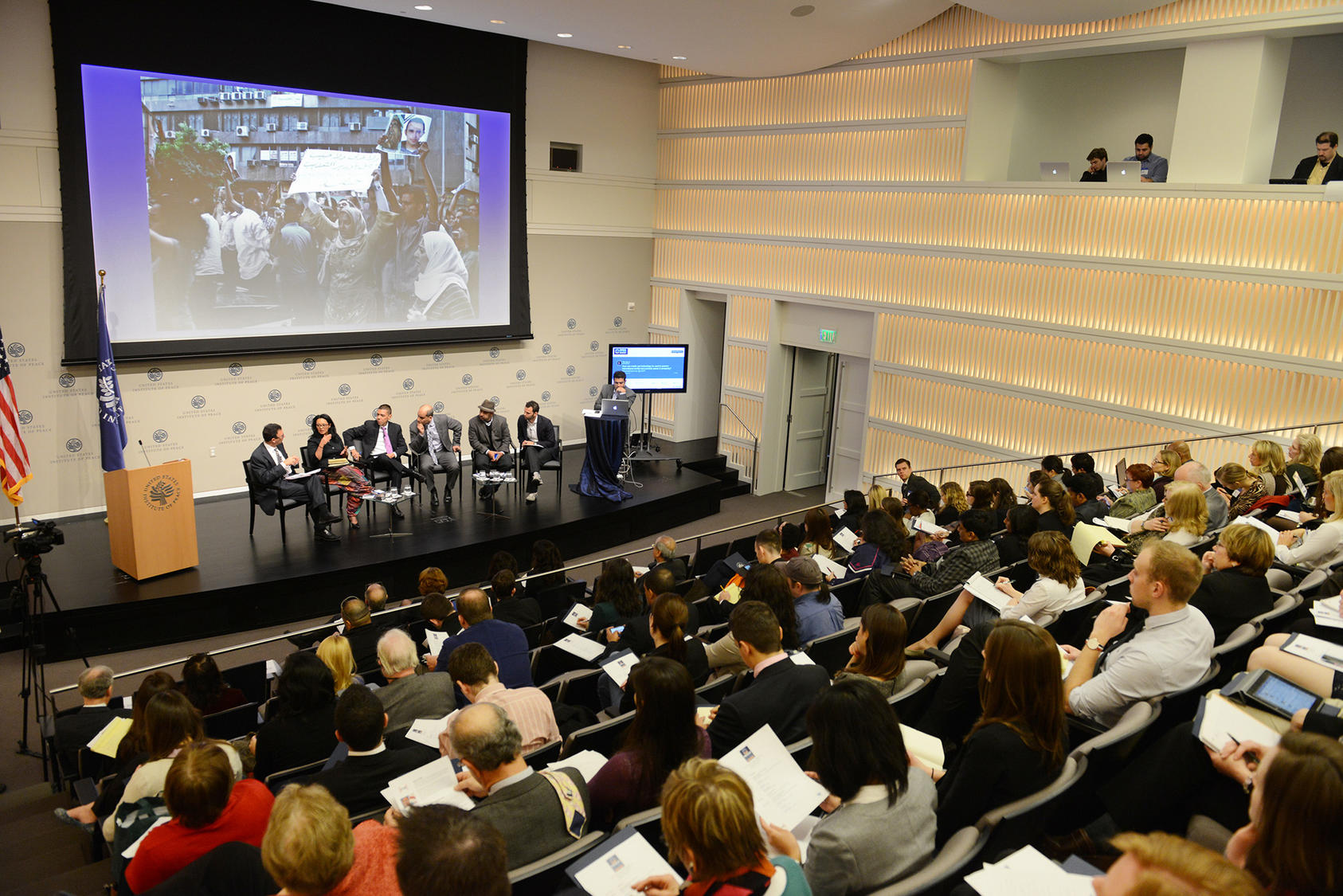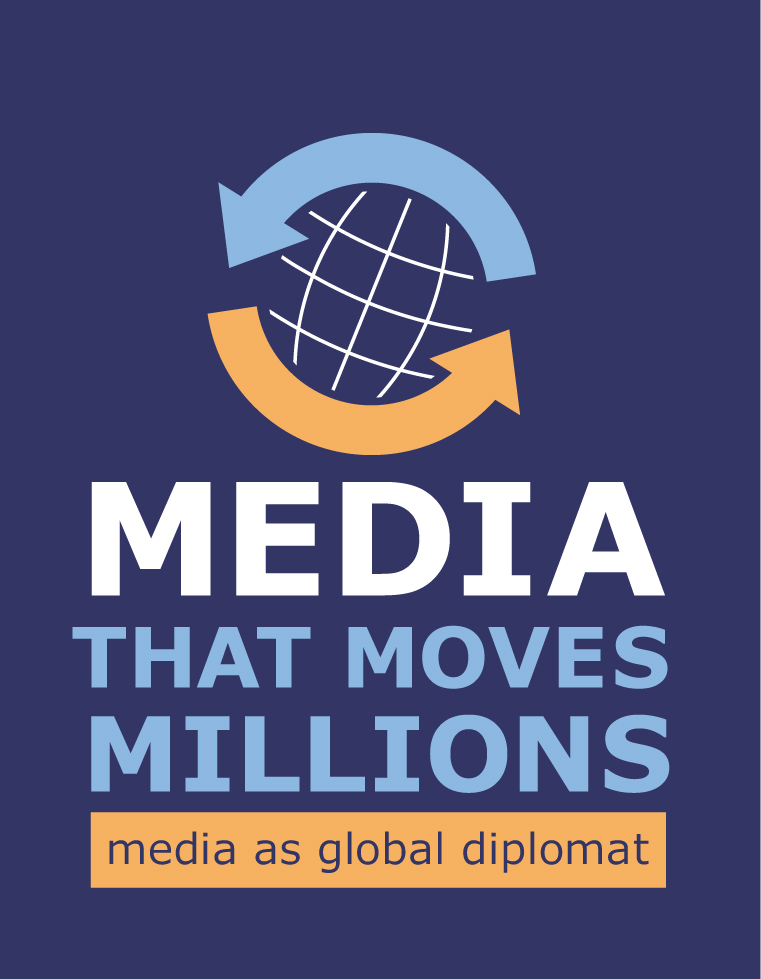Media as Global Diplomat: Media that Moves Millions
Hosted by the United States Institute of Peace (USIP) and Independent Television Service (ITVS)
Sponsored by USIP and ITVS, the Media as Global Diplomat series of summits has highlighted the expanding power of today's media to transform public diplomacy and promote peaceful international relations since 2009. This year's summit, Media that Moves Millions, looked at the unprecedented phenomena of user-generated media campaigns that have inspired masses of participants and rocked political systems.

 The first part of the event featured, on stage, those campaigns that have captured the world's attention by successfully using participatory media for social change, particularly in conflict settings, including the We Are All Khaled Said, Half the Sky, and Kony 2012 campaigns. The second portion of the day offered hands-on instruction by experts from Facebook, Twitter and Indiegogo to individuals and organizations alike seeking to use the ever-expanding toolkit of media for social change and peacebuilding.
The first part of the event featured, on stage, those campaigns that have captured the world's attention by successfully using participatory media for social change, particularly in conflict settings, including the We Are All Khaled Said, Half the Sky, and Kony 2012 campaigns. The second portion of the day offered hands-on instruction by experts from Facebook, Twitter and Indiegogo to individuals and organizations alike seeking to use the ever-expanding toolkit of media for social change and peacebuilding.
Livestream: This event was livestreamed beginning at 9:00am EST on February 28, 2013. Online viewers were able to engage panelists and each other through live chat and Twitter discussions (Hashtag: #GlobalDiplomat).
Welcome Remarks and Introductions
- Sheldon Himelfarb
Director, Center of Innovation: Media, Conflict, and Peacebuilding, USIP - Kristin Lord
Executive Vice President, USIP - Sally Fifer
President, CEO, ITVS - Hari Sreenivasan
PBS NewsHour Correspondent
Keynote Address
- Alec Ross
Senior Advisor for Innovation, US Department of State
PANEL I: From Screens to Streets
- Frank Sesno (moderator)
School of Media and Public Affairs, George Washington University - Abderrahim Foukara
Washington, D.C. Bureau Chief, Al Jazeera - Adel Iskandar
Media Scholar, Academic - Matthew Perault
Public Policy Manager, Facebook - Nadine Wahab
We Are All Khaled Said - Oscar Morales
One Million Voices Against The FARC
Keynote & Intro Panel II
- Clay Shirky
Author, Professor, NYU
PANEL II: Going Global – Building Networks of International Support
- Frank Sesno (moderator)
School of Media and Public Affairs, George Washington University - Ben Keesey
Executive Director, CEO, Invisible Children - Jenifer Snyder
Executive Director and President, The mGive Foundation - Kathy Calvin
President and CEO, United Nations Foundation - Maro Chermayeff
Executive Producer, Half the Sky - Nicholas Kristof
The New York Times - Veronica Eragu
EDG Venture Consult, Uganda (Teleconference)
Lunchtime Keynote
- Tamara Gould
Sr. Vice President, National Productions and Strategic Partnerships, ITVS - Patricia de Stacy Harrison
President and Chief Executive Officer, CPB - Nicholas Kristof
The New York Times
Facebook for Content Creation, Curation and Movement Building
- Brooke Oberwetter
Associate Manager of External Affairs, Facebook
Unlocking the Power of Twitter and 10x10
- Kate Gardner
Founder, Dstl - Didi Bethurum
Director of Marketing & Digital Strategy, 10x10
Crowdfunding
- Danae Ringelmann
Founder, Indiegogo
Half the Sky & Games for Social Change
- Asi Burak
Co-President, Games for Change




